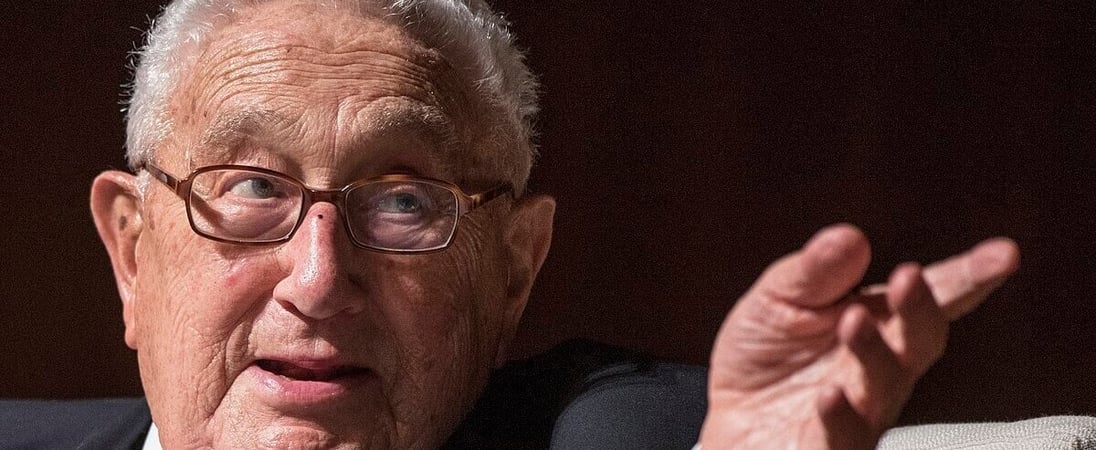
Henry Kissinger's birthday
Henry Kissinger, born on May 27, 1923, was a notable figure in global politics. His journey from Germany to the United States set the stage for an impactful career.
Kissinger served as Secretary of State and National Security Advisor in the 1970s. He played a key role in shaping U.S. foreign policy, notably during the Vietnam War and the Cold War era.
His contributions to international diplomacy and controversial decisions continue to spark discussions today. Kissinger’s life story combines a blend of intellect, controversy, and significant influence on world affairs.
Henry Kissinger’s Early Years
Henry Kissinger’s childhood began in Fürth, Germany, where he was born on May 27, 1923. Growing up in a Jewish family, he faced the harsh realities of Nazi rule.
In 1938, his life took a dramatic turn when his family fled to the United States to escape persecution. This move marked a new beginning for young Henry in New York City.
In America, Kissinger’s academic journey flourished. He attended George Washington High School, adapting quickly despite the language barrier.
His intellectual curiosity shone through, leading him to study accounting at City College of New York. However, World War II interrupted his education. Kissinger was drafted into the U.S. Army in 1943, where he demonstrated leadership and intelligence.
After the war, Kissinger seized the opportunity for higher education under the G.I. Bill. He enrolled at Harvard University, displaying a remarkable aptitude for government and international affairs. His studies culminated in a Ph.D. in 1954.
At Harvard, Kissinger’s passion for diplomacy and global strategy shaped his future path, setting the stage for his influential career in international politics.
Triumphs of Henry Kissinger
Henry Kissinger’s rise in global politics is a tale of ambition and influence. After earning his Ph.D. from Harvard, he quickly became a respected academic and strategic thinker.
His expertise in foreign affairs led to a crucial role in shaping U.S. policy during the Cold War.
In 1969, President Nixon appointed Kissinger as National Security Advisor. He played a pivotal role in various international negotiations, showcasing his diplomatic finesse.
One of his landmark achievements was his contribution to easing U.S.-Soviet tensions, known as détente, which significantly reduced the risk of nuclear confrontation.
Kissinger’s efforts in negotiating the Paris Peace Accords in 1973 to end the Vietnam War marked another high point. His role in these negotiations earned him the Nobel Peace Prize, although the award was surrounded by controversy due to the ongoing conflict in Vietnam.
Kissinger skillfully navigated complex relationships in the Middle East, playing a key part in the negotiations following the Yom Kippur War. His “shuttle diplomacy” was instrumental in establishing ceasefires between Israel and its neighbors, Egypt and Syria.
Beyond diplomacy, Kissinger made lasting impacts through his writings. His books and essays on international relations and diplomacy are widely read, influencing both policymakers and scholars.
His thoughts on “realpolitik,” a pragmatic approach to foreign policy, continue to shape the field.
Kissinger’s journey from a young immigrant to a powerful statesman is a testament to his strategic mind and capacity to influence world events.
His successes, marked by accolades and controversies, have left an indelible mark on the history of international politics.
Interesting Facts About Henry Kissinger
Polyglot Abilities: In addition to English, Kissinger was fluent in German and conversant in French, showcasing his linguistic talents.
Military Merit: During World War II, he was awarded the Bronze Star for his exceptional intelligence work that helped locate German divisions.
Harvard Faculty: After completing his Ph.D., Kissinger remained at Harvard as a faculty member, significantly influencing the academic community.
Advisor to Multiple Presidents: Besides Nixon and Ford, Kissinger advised various other U.S. presidents, playing a key role in shaping policy beyond his official tenure.
The “Kissinger Telcons”: His telephone conversations, recorded during his service, were released, providing unique insights into U.S. diplomacy.
A Prolific Writer: He authored numerous books and articles on international relations, contributing to the field’s scholarly and practical understanding.
The Nobel Controversy: His Nobel Peace Prize in 1973 sparked debate and was criticized by some due to the ongoing Vietnam War.
Also on this date...
World Marketing Day
Elevating products through strategic storytelling, creating connections that resonate and drive impact in the dynamic landscape of commerce.
National Sunscreen Day
Sun damage can cause painful burns, wrinkles, and of course the ever-dreaded skin cancer. Use a high-SPF broad spectrum sunscreen any time you’re out in the sun.




